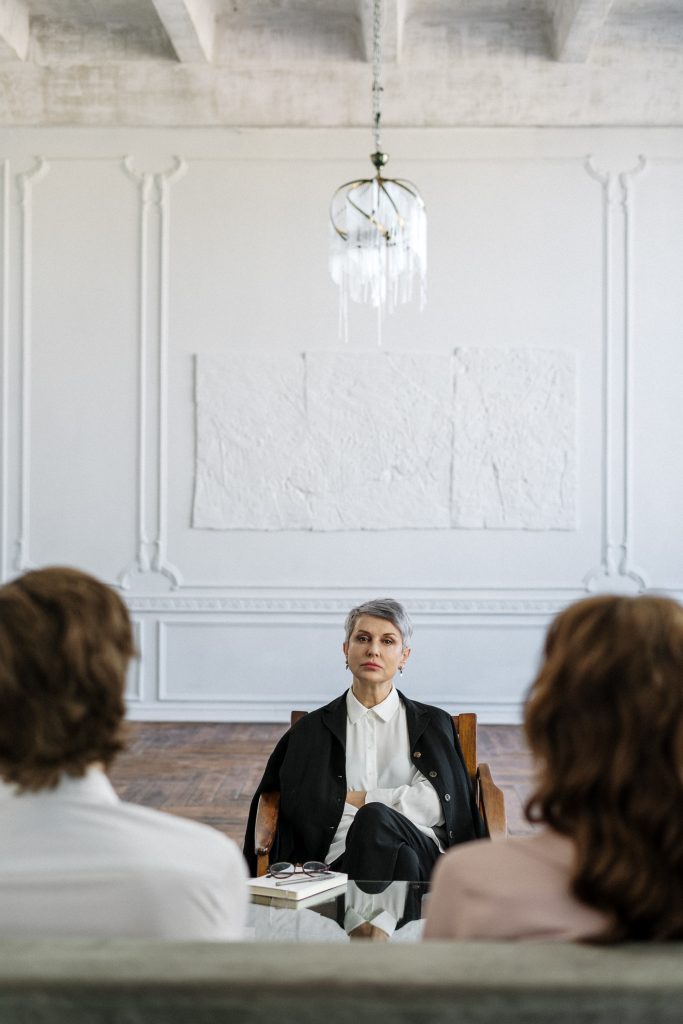Starting premarital counselling at the right time can significantly improve the strength and longevity of a marriage. Many couples believe counselling is only necessary in the final weeks before the wedding.
However, experts suggest starting much earlier. Premarital counselling is about establishing a healthy foundation for the marriage, which includes learning communication skills, discussing values, and preparing for potential challenges.
Below, we summarise the optimal timing for premarital counselling in a structured format with headings, explanations, numbered lists, and bullet points to highlight key considerations.
Let's get straight to the point
Premarital counselling is best started early to build a strong foundation in communication, trust, and respect.
Couples can start counselling at various stages, from early in the relationship to after engagement or even 6-12 months before the wedding.
Early counselling offers more time to identify red flags and align goals. Beginning after engagement allows couples to discuss commitments and life goals without wedding stress. Starting 6-12 months out provides ample time for skill-building.
For shorter engagements, 3-6 months offers focused sessions on critical topics. Couples facing relationship challenges may seek immediate counselling to resolve issues before marriage.
The key is to approach counselling openly to strengthen the relationship, ensuring a marriage that can stand the test of time.
1. Start Premarital Counselling Early In The Relationship

Beginning counselling early in the relationship—before engagement or marriage is imminent—can benefit couples committed to exploring a long-term future together. Counselling is not only for those with immediate wedding plans; it’s a proactive step to build a solid foundation for marriage.
Benefits Of Starting Early
- Open Communication from the Start
- Early counselling fosters transparent communication before patterns are deeply established.
- Couples learn to express needs and expectations, reducing misunderstandings over time.
- Opportunity to Identify Potential Red Flags
- Counselling helps identify areas of disagreement that might be overlooked.
- Early detection provides time to work on these issues before they become problematic.
- Building Trust and Respect Gradually
- Trust and respect take time to build, and early counselling provides a safe space to develop these qualities.
- Learning to trust each other’s perspectives enhances relationship security and intimacy.
Why This Approach Works
Beginning premarital counselling early creates an open line of communication, encourages mutual respect, and helps avoid hidden resentments. It also sets the groundwork for an honest and trusting relationship, essential for a successful marriage.
2. Begin Premarital Counselling After Engagement
Another ideal option for already engaged couples is to start counselling as soon as the engagement is official. This is when both partners are committed to a future together, making it a meaningful time to discuss long-term goals and expectations.
The months between engagement and the wedding are valuable for this process.
Benefits Of Starting After Engagement
- Time to Address Important Issues Without Pressure
- Couples can discuss finances, family dynamics, and other critical topics early in the engagement.
- Without the immediate pressure of a wedding date, couples can explore these issues more openly.
- Creating Shared Goals for Marriage
- Couples can discuss and align on financial goals, family planning, and personal aspirations.
- Shared goals encourage couples to work together to achieve a fulfilling married life.
- Strengthening Commitment and Reducing Wedding Stress
- Counselling helps couples work through pre-wedding stress and anxieties.
- Couples can approach their wedding with greater unity by addressing concerns in advance.
Why This Timing Is Effective
Starting premarital counselling after engagement allows couples to deepen their commitment and better understand each other's perspectives. It builds confidence in the relationship and helps both partners feel prepared for the challenges of marriage.
3. Begin Premarital Counselling 6-12 Months Before The Wedding
Many professionals recommend beginning 6 to 12 months before the wedding. This time frame offers a comfortable balance, providing enough time to cover essential topics without feeling rushed.
Counselling at this stage allows couples to integrate what they learn into their daily lives, strengthening the relationship before marriage.
Benefits Of Starting 6-12 Months In Advance
- Sufficient Time for Multiple Sessions
- Many couples benefit most from 3-6 sessions covering conflict resolution and financial planning.
- Starting months in advance allows for comprehensive discussions without overlapping with intense wedding planning.
- Practising New Skills Before Marriage
- Skills like active listening, financial planning, and problem-solving can be practised in real life.
- Couples can apply what they’ve learned, refining their relationship dynamics before the wedding.
- Reduces the Risk of Last-Minute Issues
- Starting early prevents last-minute stress, allowing couples to focus on the wedding celebration.
- Early counselling reduces unresolved tensions, ensuring a smoother transition to married life.
Why This Time Frame Is Optimal
Beginning 6-12 months before the wedding is ideal for engaged couples who want a thorough marriage preparation approach. It offers a structured way to resolve issues and promotes a harmonious, well-prepared partnership.
4. Begin Premarital Counselling 3-6 Months Before The Wedding
For some couples, starting counselling 3-6 months before the wedding can be effective, especially if they have limited time. This shorter window allows couples to focus on essential discussions that prepare them for a stable marriage.
Benefits Of Starting 3-6 Months In Advance
- Focused and Efficient Sessions
- With fewer sessions, the focus is on critical areas, such as communication styles and financial responsibilities.
- Efficient, structured sessions ensure that key topics are covered within a short time frame.
- Prepares Couples for Immediate Issues
- With the wedding around the corner, counselling helps manage stress and expectations.
- Conflict resolution techniques learned in counselling can be directly applied to wedding planning challenges.
- Strengthens Emotional Readiness
- Premarital counselling helps couples address any pre-wedding jitters or anxieties.
- Counselling provides emotional support, fostering a sense of readiness for the commitment.
Why This Timing Is Practical
For couples with a shorter engagement, 3-6 months before the wedding offers a realistic option for premarital counselling. Although the sessions may be more condensed, they still address essential preparation areas for marriage.
5. Begin Premarital Counselling As Soon As Wedding Planning Begins

Wedding planning often reveals differences in expectations and decision-making styles. For this reason, many counsellors recommend starting counselling as soon as wedding planning begins.
This timing helps couples manage the planning process more collaboratively and prepares them for married life.
Benefits Of Starting During Wedding Planning
- Addressing Decision-Making Styles
- Counselling helps couples understand and respect each other's decision-making processes.
- This approach minimises conflicts over wedding-related decisions, promoting teamwork.
- Reducing Planning Stress
- Wedding planning can be a significant source of stress. Counselling helps couples support each other through challenges.
- Techniques for stress management and effective communication are useful for managing wedding pressures.
- Setting Realistic Expectations for Marriage
- Discussing roles and expectations for married life sets a practical foundation.
- Counselling helps couples focus on the future, preparing them to face life as a team.
Why This Approach Is Helpful
Beginning counselling alongside wedding planning gives couples the skills to work together effectively. It promotes a healthy partnership for both the planning phase and the future.
6. Start Counselling When You Face Relationship Challenges
Some couples seek premarital counselling after experiencing conflicts or facing challenges in the relationship. This timing particularly benefits couples who want to resolve significant issues before marriage, ensuring they enter marriage with a fresh perspective.
Benefits Of Starting When Facing Challenges
- Immediate Resolution of Conflicts
- Counselling provides tools to address conflicts and prevent them from becoming larger issues.
- Resolving existing challenges gives couples confidence that they can handle future difficulties.
- Understanding Each Other’s Perspectives
- Counselling fosters empathy, helping partners understand each other’s viewpoints.
- This understanding improves communication, building a strong emotional foundation for marriage.
- Rebuilding Trust and Commitment
- Counselling supports couples in repairing trust if past conflicts have strained it.
- Addressing issues directly enhances the couple’s commitment to working together.
Why This Timing Is Effective
Seeking counselling in response to relationship challenges ensures couples don’t carry unresolved issues into their marriage. It provides a proactive solution, helping partners build resilience and commitment before taking their vows.
Conclusion
Premarital counselling is a powerful tool for building a solid foundation in any relationship, and starting at the right time can greatly enhance its effectiveness.
Whether you begin early in the relationship, after engagement, or even in response to challenges, the most important aspect is that both partners approach counselling openly and genuinely desire to understand and grow together.
By investing in these conversations and developing essential skills, couples can reduce the likelihood of misunderstandings, build trust and respect, and set shared goals for a fulfilling married life.
Ultimately, premarital counselling is not just about preparing for a wedding; it’s about creating a marriage that stands the test of time.
FAQs About Premarital Counselling
Premarital counselling is a therapy that helps couples take the next step in their relationship, resolve issues before they commit to marriage, or set relationship goals.
Most therapists agree that anywhere from 8 – 10 weeks up to 3 – 6 months is sufficient for premarital therapy. That said, it's essential to remember that how long it takes to complete premarital counselling depends on the issues you want or need to cover throughout your sessions.
Premarital counselling is a therapy that helps to prepare couples mentally for marriage. Counselling helps ensure that you and your spouse can have a strong and healthy relationship throughout your life. Premarital counselling helps to improve a couple's relationship before marriage.
There's no steadfast official rule about when to start premarital counselling. While many choose to wait until just a few weeks or months before the wedding, you can't start too early. Studies show that couples who go to premarital counselling have a 30% higher rate of success than couples who don't.
The counselling process is a planned, structured dialogue between a counsellor and a client. It is a cooperative process in which a trained professional helps a person called the client to identify sources of difficulties or concerns that they are experiencing.

